A New School Focused On Raising Global, Urban Citizens To Open In Brooklyn
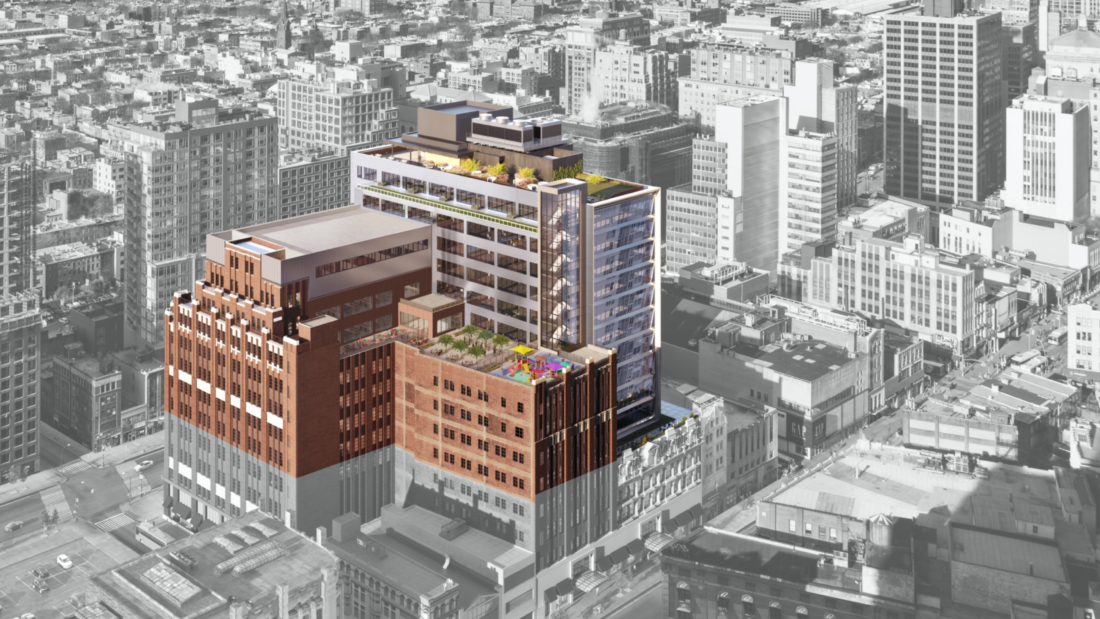
DOWNTOWN BROOKLYN – The redeveloped old Macy’s on Fulton Street will open in the fall of 2020 to welcome hundreds of 3, 4 and 5-year-olds at the new Whittle School. We spoke to Larry Weiss, the former principal of Saint Ann’s and Brooklyn Friends, who is now the Executive Chairman of Whittle School & Studios Brooklyn Campus, about the philosophy behind the new independent school, about Brooklyn, and about teaching. The school expects to enroll 2,500 students within a few years. Our conversation has been lightly edited and condensed for clarity.
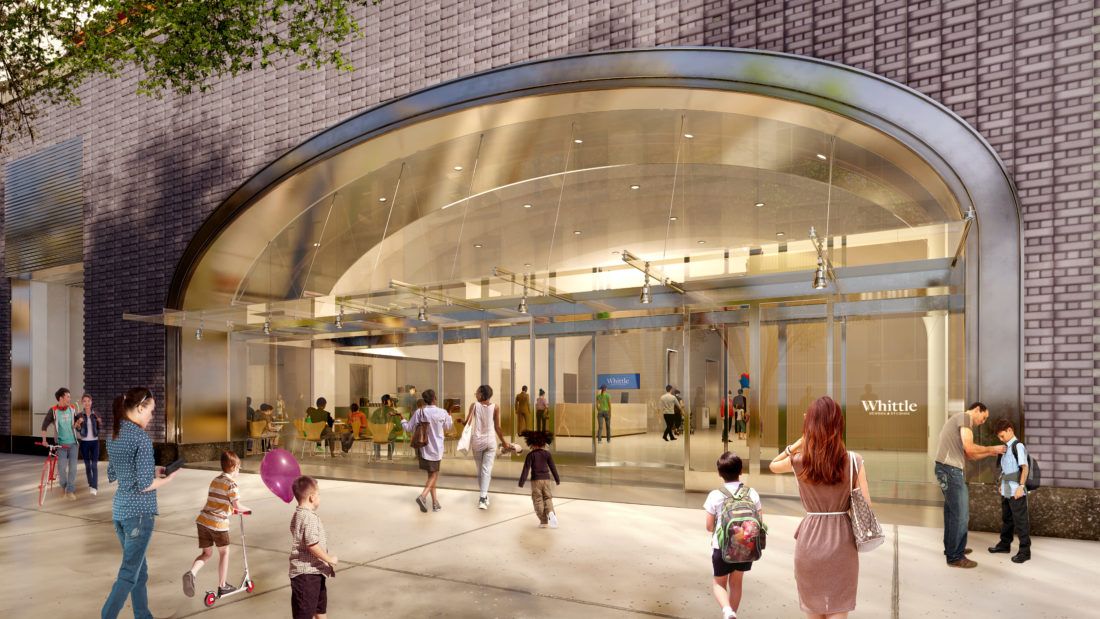
What attracted you to the Whittle School and what kind of school are you creating?
I’ve spent a lot of my adult life working in two major areas. One has been US-China relations and the other has been secondary education and K-through-12 education. And the idea that those two things were coming together at this particular stage was very attractive. I had some contact with Chris Whittle in between my headships at Saint Ann’s and at Brooklyn Friends. In my last two weeks at Brooklyn Friends last spring, he called me and talked to me about this idea. And essentially, I retired for a week and then started working as a consultant on this project.
The Brooklyn school is going to be quintessentially urban. Brooklyn is the third in a network that includes a school in D.C.and a school in Shenzhen in China, and I think we could use a globally focused independent school. In some ways the most exciting thing for me is to have a chance to build a faculty, staff and a program from a level of highly theoretical development and experience of the other two locations, but really be able to shape it to work.
Brooklyn now is just an ideal global kind of place, and it’s a global moment, particularly for downtown Brooklyn.
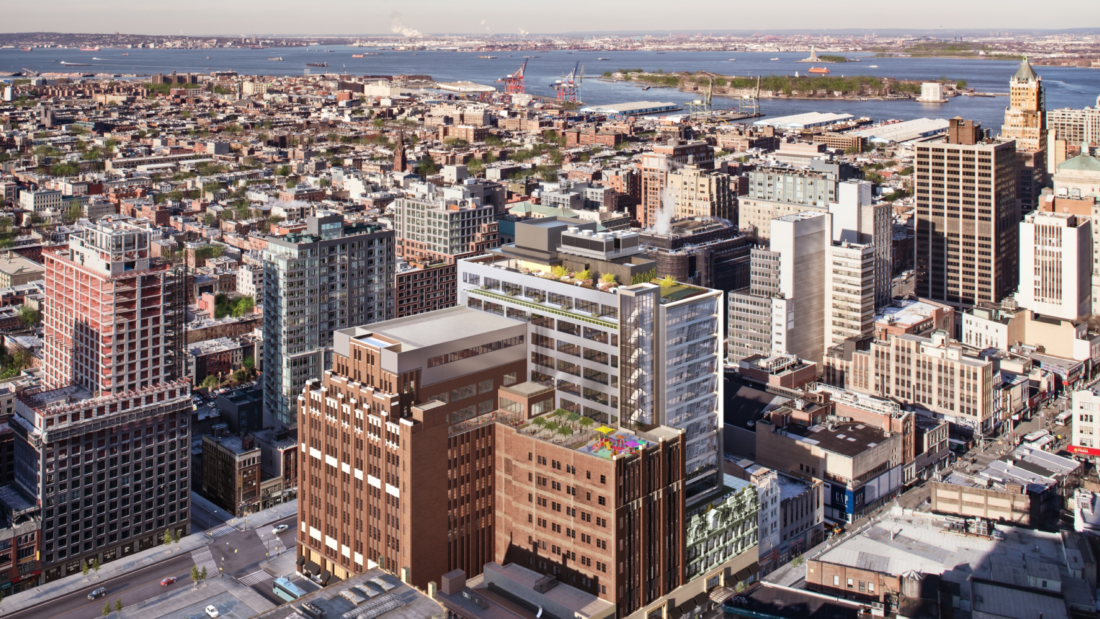
Many families and kids have made a deliberate, conscious decision to become centrally involved in a dense urban environment, maybe quite a few have come from the suburbs, which is where I grew up, or they’re coming from other cities. But I think that that level of commitment is a really great thing to start out with and then to realize that Brooklyn itself is really grappling with the quintessential issues of urban development right now. And it’s having some success and some ongoing issues that really need to be attended to.
Inclusion and diversity are some of those issues, economic opportunity and integrity. You know, the whole value structure and the impact of social media, all of these things are issues in a lot of schools, public and private, around the country and around the world, but I think they are particularly urgent in Brooklyn right now. We also have, you know, what I think is a very welcome, major commitment that NYU is making to Brooklyn. And that’s an opportunity to do what I’ve always tried to do in my other jobs, which is to develop links with tertiary education programs and with the schools that our students are going to go to when they finish our program.
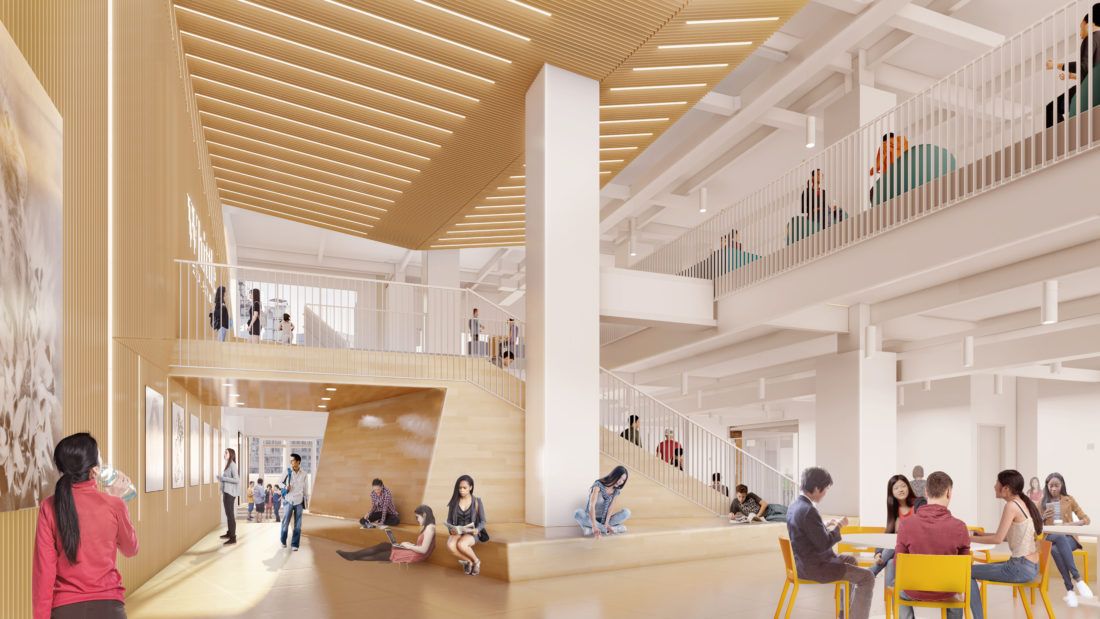
Speaking of the quintessentially Brooklyn issues – the tuition that I can see on the site is roughly the median income in town.
Although it’s a for-profit school, the financial aid commitment is as strong or stronger than about the not for profits that usually based their scholarship capacity on fundraising and endowments. We’re basically committed to a model that takes a percentage of the gross operating budget and says this is available for financial aid. We are deliberately looking for economic diversity, for racial and ethnic diversity, for national identity diversity. And in this project, we will have a substantial number of international students.
You mentioned, Mumbai, any other countries where you’re thinking of expanding?
We’ll probably be in Britain fairly soon. And we are really looking on all continents. Abu Dhabi just came up as one possibility. There will be at least three or four schools in China by the time this first phase of Brooklyn is completed. South Korea, Japan – these are all possibilities.
What do you hope to instill your students with?
We’re looking for students no matter what nationality or socioeconomic background they’re coming from, to really have a global perspective that is more than rhetorical, that it is experiential, that’s based on friendships and relationships that have evolved, that are based on deep, multilingual kind of capacity. Looking at the world in ways that are not America centric or, you know, sort of upper-bourgeois centric, but really looking at the world through the eyes of the great variety of its people.
And there is any number of colleges and universities supporting curricula of that nature. And we’re really looking at giving them the best possible freshmen and sophomores that they could look for.
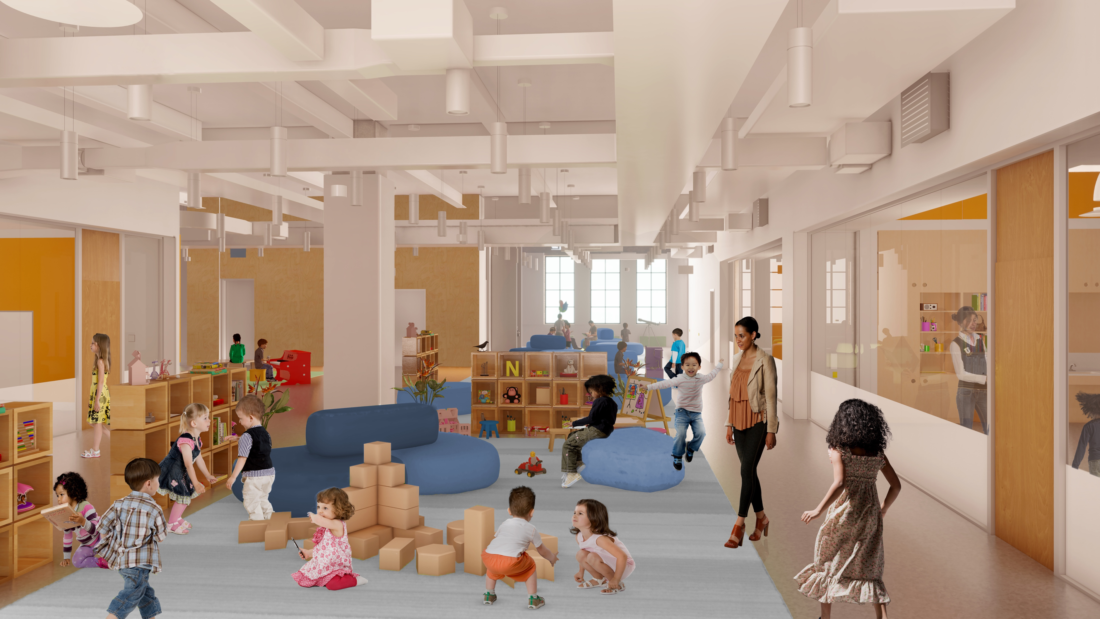
How is your school different from other independent schools in Brooklyn?
Oh, I think it would be easier to think about where we might align. We differ a lot. We are very concerned on the STEM, on the science and technology side, with making that a part of a global curriculum because the issues and technologies are spreading as rapidly to all parts of the world as they can be. I can’t pretend to know much about BASIS, but we are based much more on a project model, both individual and collaborative, on originality and depth of work rather than just mastery of existing ways of doing things.
We do recognize that in a lot of technical fields, the math skills have to be there. The computer technology skills need to be there. And that’s going to be a part of our curriculum. But I do think Saint Ann’s an ideal example of how that emphasis can be part of a program that’s really centered on student excellence, on student passions, on going deeply into the subject. When the student really wants to go as deeply as possible, rather than trying to keep everybody, you know, in the same saddle and moving forward on the basis of quantitative results. That’s not where we’re at.
What is different at Whittle is the global partnerships and colleagues and all of that, which was actually one of the things that I was trying to expand at Saint Ann’s and I think with some success. We had a lot of schools visiting us during our time and there were some really good exchange programs that got started. But the Whittle network is essentially a permanent exchange program, which is at the faculty and administrative, as well as the student level. I think the example of Saint Ann’s curriculum and what it has achieved just by really trying to understand where the student’s individual passion is and that passion can lead to depths at work, whether it’s the sciences or the arts or literature or community engagement. Feeding that passion through support, a really supportive relationship between teachers and students. That’s what we’re really looking for.
There’s room for a lot of different educational approaches in Brooklyn, and that includes the public schools. I think really, you know, I had the pleasure of working at Brooklyn Friends with Principal Phillips, who was principal at PS8, he was a student of mine at Brooklyn Friends, and I really respect what he was able to develop at PS8. One of the first alliances that we’ve been looking at is with Medgar Evers College/CUNY. They have an education department there that we really will look at very seriously for teaching candidates. So it’s that kind of multi-faceted approach to Brooklyn.
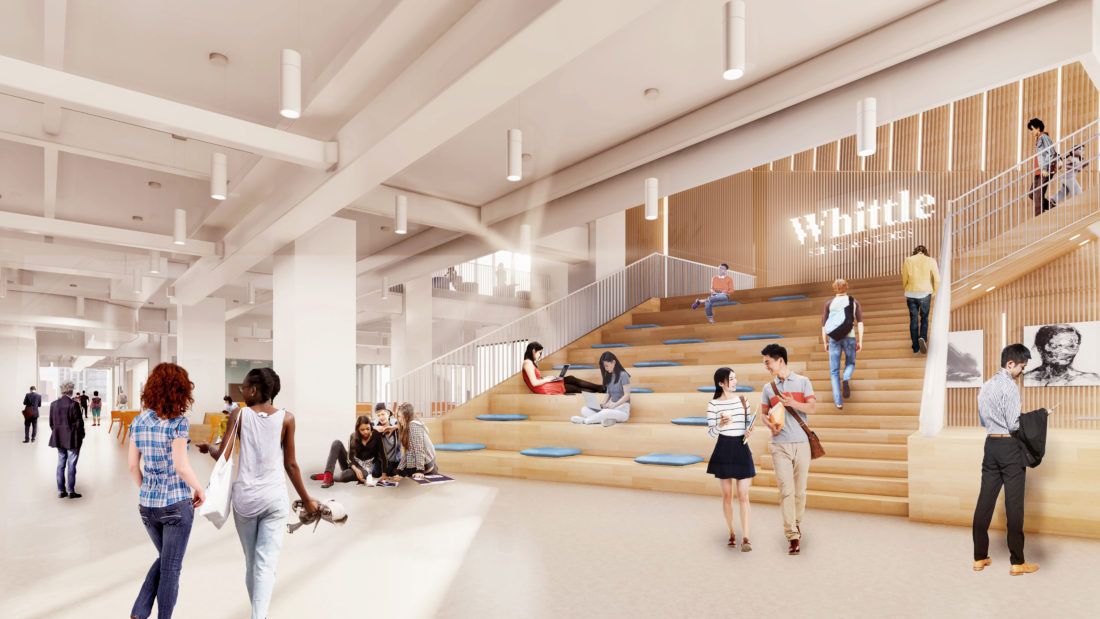
Let’s talk a little about educating students of all abilities.
I’ve been involved with a lot of that, even at these schools with very fancy names, and I believe in as much mainstreaming as can take place with individual tutorial work that can often be done by teachers under the guidance of learning specialists. Every school that I’ve worked at, particularly in the post-Sidwell era, Horace Mann, Saint Ann’s and Brooklyn Friends, had really terrific learning specialists and they were very much working on a mainstreaming model. And I think Bankstreet has had a really big impact on the training of those people.
That’s particularly true of early childhood and for the lower school, which is where you really want the maximum potential impact on learning issues so that they don’t get postponed to be dealt with in middle school or upper school, which is significantly harder.
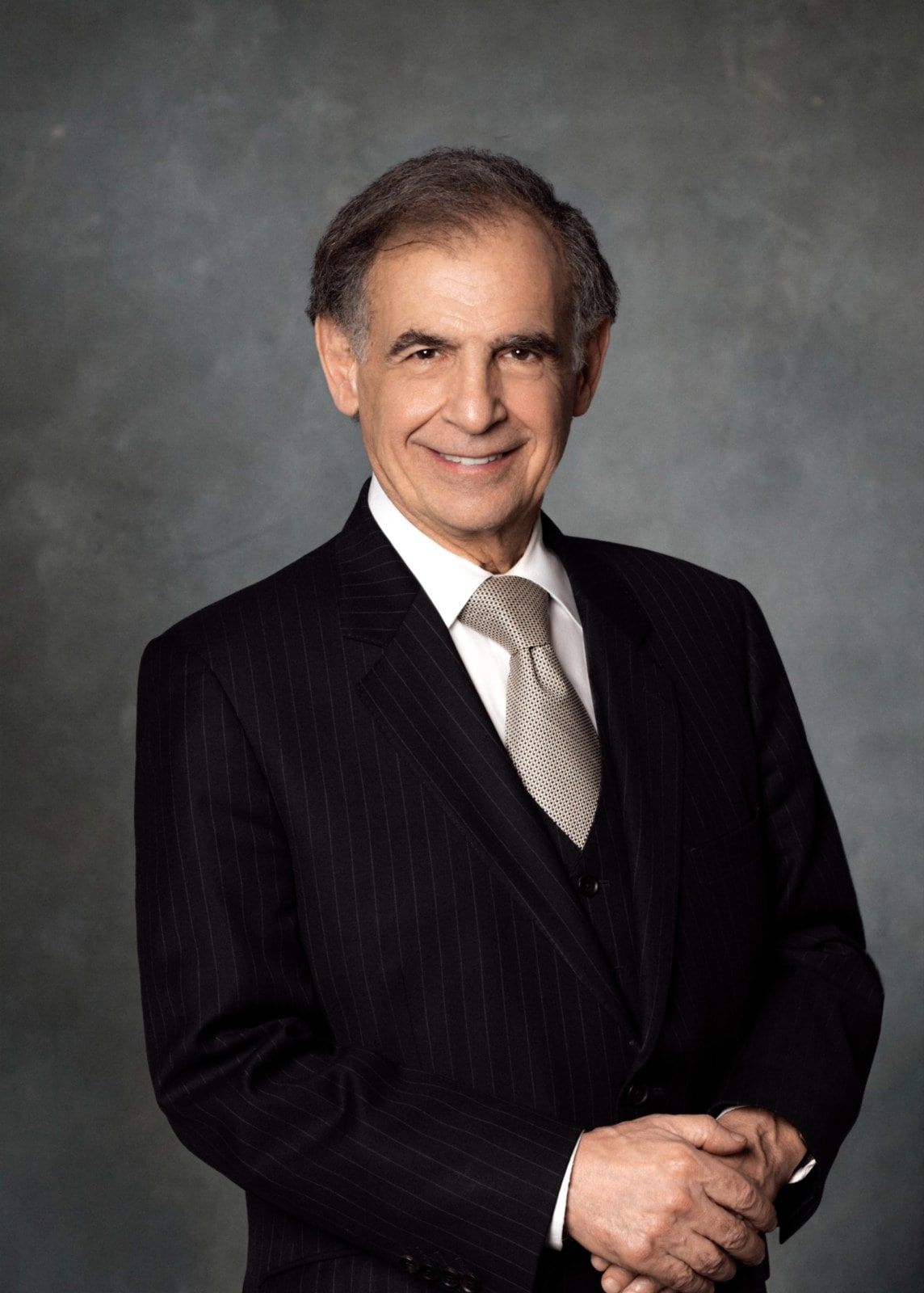
But if you’ve got a pre-K through 12th approach with really good learning specialists, they can really, you know, not only keep up, but in some places excel in areas, and particularly if there are areas of their own interest. And that’s where I think some of the learning specialists in public schools – who are having to deal with so many different comprehensive kinds of issues – they don’t get the benefit of working with kids who really know what they want to do more of, which creates a tremendous motivational capacity for the kids.
And I think the most tragic thing about some of that or all of these learning issues is that they mask a lot of the strengths that the student her or himself has and that masking is all the more lethal when it’s best for the child and her himself. But the child just loses confidence in succeeding in school when, in fact, they have the capacity to excel at school, if not in all areas, in some cases, even more than kids who are sort of mainstream, generally talented.
There are a lot of models out there. But as is usually true with models, it’s the individual who really comes with the training and comes with the motivation and is getting support from the administration and the teachers. That’s where you really see the great work on learning issues.
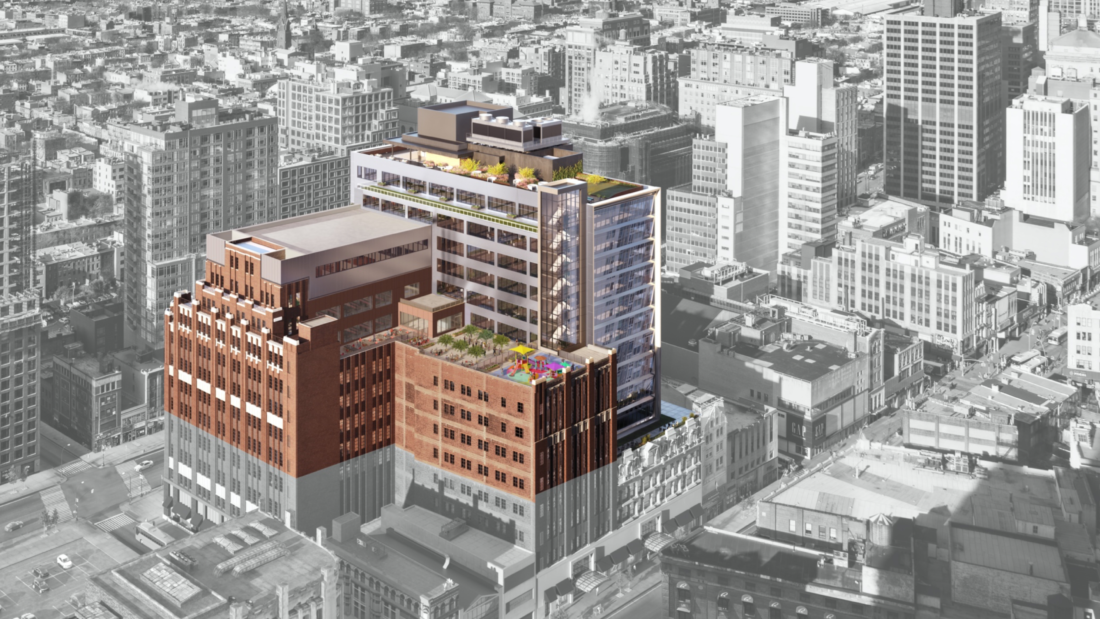
Why Downtown Brooklyn?
Downtown Brooklyn, where our school is going to be, you know, right on top of the old Macy’s store, was never seen as an ideal location for an independent school. But no one anticipated the forest of residential buildings that are being built down there.
And they’re being built at a time when virtually all of the pre-K through 12th Brooklyn independent schools are essentially saturated in their own markets. And so there’s really an opportunity to serve this new constituency. And I think to serve the greater downtown Brooklyn area, which has a lot of economic diversity that will continue, even though economic and socio racial diversity that we’re really committed to really doing what we can to serve those elements of the community as well.
I think it was initially thought of as office space, but we were able to get a long term lease on all of it. So we have about 600,000 square feet to work with, which is again, very rare for an independent school in a downtown area.
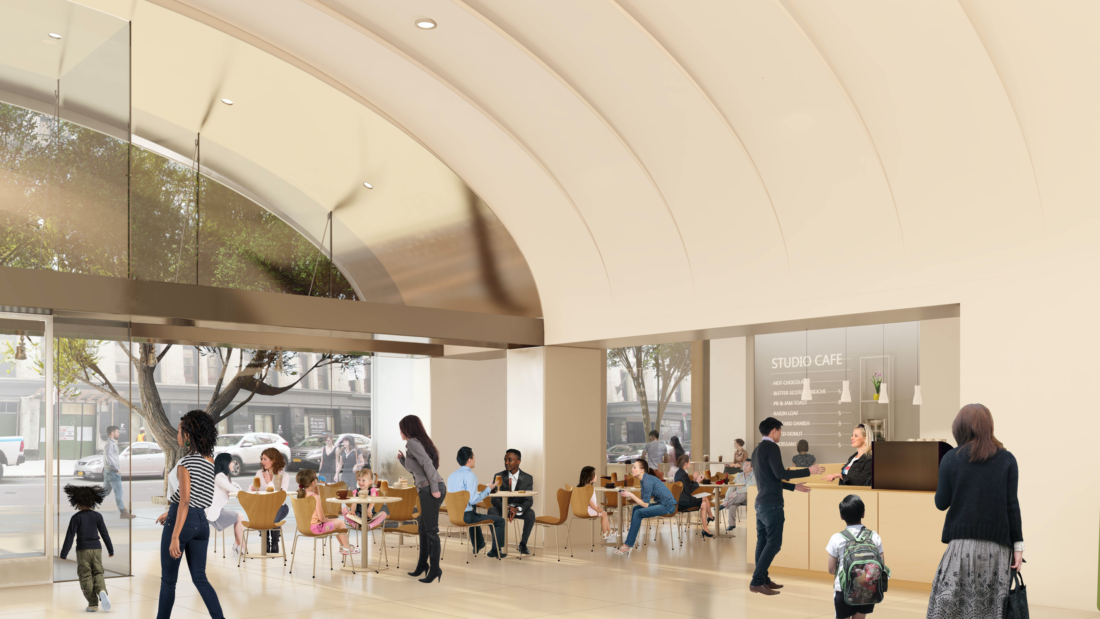
Who will be teaching at Whittle School?
If there’s one person who sort of incorporates the answer to the question, it’s Meg Roosa who was recently appointed Division Head for Early Learning. She was the founder of Plymouth Church School in Brooklyn Heights, which still I think has a reputation as the best preschool in Brooklyn. And she went on to do a lot of work at the University of Washington Lab Schools in Seattle. And she’s been the head of an Ascend charter school in Mumbai, India, where we expect to have a school at some time as well. That’s extraordinary experience, and Meg is the person who is going to be primarily in charge of hiring for the early learning.
Our first year for 2020/2021 is going to be preschool, 3s, 4s, kindergarten and some first grade. The teachers are also going to be supplemented by Chinese language teachers because we’re starting immersion Chinese with the three-year-olds, that’s part of our model. Quite a few of those Chinese teachers are coming from experience with our school in Shenzhen and in D.C., some of them are coming to New York. But in terms of the non-Chinese faculty, we’re looking particularly for people with training and experience with Reggio Emilia.
Reggio is a very important prerequisite, and experiential learning is a very big part of our program even as early as preschool. We really want kids out of the school buildings and into community observation and work with community organizations that are really sort of collaborative approach on a lot of issues of which environment is one.
And, you know, I’ll play a role in that as well. But I love and it’s unique in my career to have the experience of being able to hire four division heads who are all on the same wavelength. And Meg has just been a great start for that.
Are you planning to expand by adding a grade a year?
No, no. We’re going to have the rest of the grades at least through 10th grade ready to go for 2021/22. And at least part of that is because the market that’s coming into all the new buildings is a market of all ages. And as hard as it is for families to find preschool opportunities in the independent school sector now, it’s even harder to get into the middle schools and upper schools. And we just really want to be able to serve those constituencies as quickly as we can.
How big is the shortage and how many students are you thinking of admitting?
Well, our preschool model is to have five sections of 15 students each for each grade level. So, that’s about 225 per level, and we are looking at about 250 in the grade levels going up. So ultimately, 2,500 students in the whole school.
It’s a little bit bigger[than other local independent schools], but not by that much. I think Saint Ann’s is over a thousand at this point, Horace Mann, Fieldstone, Riverdale, they’re all around fifteen hundred at this point. Now that 2,500 will include a boarding component of 500, which is not going to be available at the Whittle site for a couple of years. But the purpose of the dormitory is to allow for visiting students from our other locations around the world to be able to spend the summer or a semester or a year at the Brooklyn school. The curriculum is going to be the same across all of the international networks.
If you want to learn more, there are a number of events planned, online and off.




